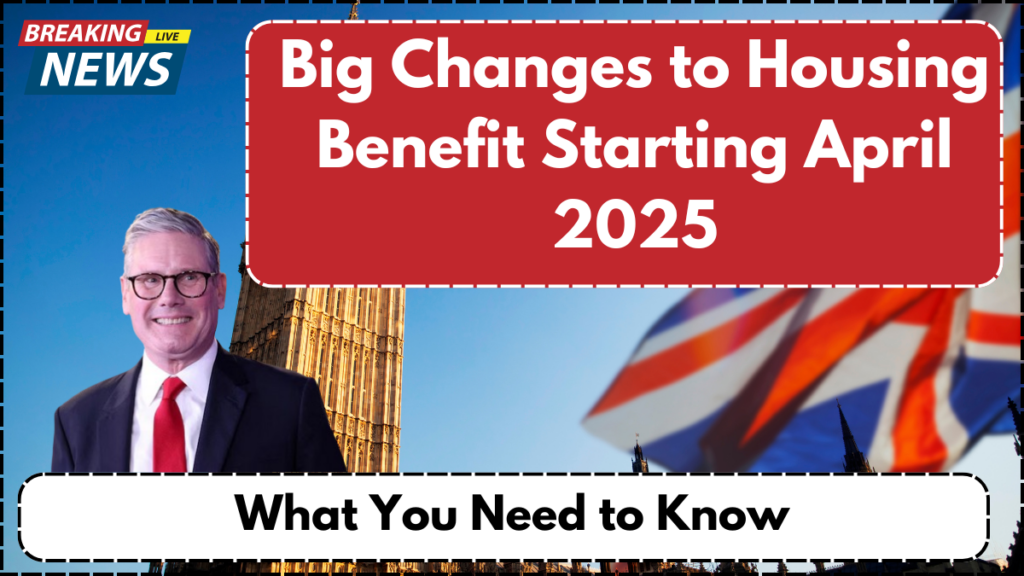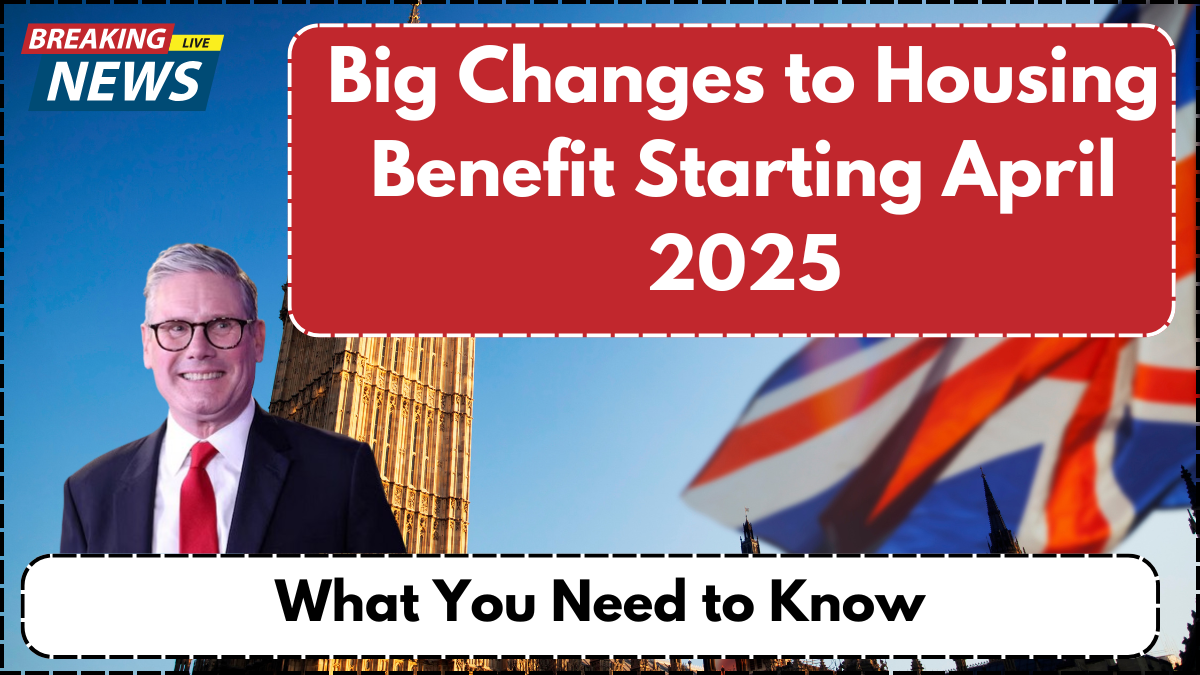The United Kingdom’s Housing Benefit system is set to undergo significant changes starting in April 2025. These revisions aim to modernize the scheme in line with current economic conditions and streamline the nation’s welfare structure. Both new applicants and existing recipients need to be aware of how these changes could affect their eligibility and monthly support.

Stricter Qualification Standards Introduced
From April 2025, stricter eligibility criteria will apply to Housing Benefit claimants. New income thresholds and tighter asset restrictions will likely result in some current recipients losing their benefits. Applicants who receive Universal Credit should expect changes to how their housing support is calculated, with some facing a decrease in their entitlement.
This shift is designed to focus support on those in the most financial need, but it will also raise the bar for qualification. For example, anyone holding savings above a newly introduced lower asset ceiling could be disqualified. Households previously borderline-eligible may now fall outside the criteria altogether.
New Employment Obligations for Working-Age Claimants
Working-age individuals claiming Housing Benefit will face additional employment-related responsibilities. Starting April 2025, these claimants will be expected to actively pursue employment or demonstrate that they are increasing their working hours.
This change aligns with the government’s push toward reducing long-term dependency on welfare. While pensioners and individuals with severe disabilities will likely be exempt, all others must prepare to meet these enhanced job-seeking requirements. Failure to comply could result in reduced or suspended benefits.
Updated Payment Rates and Regional Adjustments
Payment amounts under the Housing Benefit scheme will also change. Rates will be reviewed and adjusted based on current rental market trends and inflation metrics. While claimants in high-rent areas such as London or Manchester may see an increase in support, those in less expensive regions might experience reductions.
This regional recalibration is designed to make the system more responsive to localized housing markets, reducing instances where benefit payments either exceed or fall short of actual housing costs.
Table: Key Changes in Housing Benefit (Effective April 2025)
| Change Category | Description |
|---|---|
| Eligibility Criteria | Stricter income and asset limits |
| Universal Credit Interaction | Adjusted calculation methods may reduce total support |
| Employment Expectations | Increased job-seeking and work-hour requirements for working-age adults |
| Payment Rate Adjustments | Variable changes based on regional housing market conditions |
| Private Rental Impact | Tighter rent support caps may increase out-of-pocket costs for tenants |
| Social Housing Adjustments | Minor changes expected; more stability than private sector |
| Geographic Recalibration | Regional rent variations now factored into benefit calculations |
| Landlord Considerations | Need to adapt rental practices to match new payment structures |
Impacts on Private Renters
Private renters are expected to be among the most affected by the revised Housing Benefit scheme. With lower support caps and tighter eligibility rules, many may find that their benefits no longer cover full rental costs. This could lead to increased financial strain, especially in competitive urban housing markets.
Tenants may need to renegotiate lease terms, find more affordable housing, or cover the shortfall themselves. In extreme cases, some may even face eviction if unable to make up the difference.
Effects on Social Housing Residents
Tenants in social housing are likely to experience fewer changes. Since social rents are generally regulated and lower than private market rates, these households may only see minor adjustments in benefit amounts. However, even small recalculations could have implications for budgeting.
Staying informed via local housing authorities or councils will be essential for understanding any adjustments to benefit levels and eligibility.
What Landlords Should Know
Landlords must also prepare for the changes. The new payment structures may affect the reliability and amount of rent received from tenants on Housing Benefit. Being proactive by reviewing rental agreements and discussing upcoming adjustments with tenants can help avoid payment disputes or missed rent.
Landlords should also consider offering flexible terms or payment plans to tenants whose benefit amounts are reduced.
How to Prepare for the April 2025 Shift
With the deadline fast approaching, preparation is key. Claimants should:
- Review their eligibility under the new rules
- Update their financial and employment information
- Stay informed through official government channels
Housing providers and landlords should:
- Review current tenancy agreements
- Stay in communication with tenants
- Monitor government updates on implementation procedures
Being proactive will help mitigate disruptions and ensure a smoother transition when the new Housing Benefit rules take effect.
Conclusion
The Housing Benefit reforms scheduled for April 2025 represent one of the most comprehensive updates to the system in recent years. Stricter eligibility, localized payment structures, and increased employment expectations reflect a shift toward targeted, accountable welfare support. Both tenants and landlords must understand these changes to navigate them effectively and avoid potential financial hardship.
FAQ
What are the new eligibility criteria for Housing Benefit in 2025?
From April 2025, income limits will be lowered and asset thresholds tightened. Applicants with savings above the new limit may not qualify, and more documentation may be required.
How will these changes affect Universal Credit recipients?
The calculation method for Housing Benefit under Universal Credit will be adjusted, possibly leading to reduced support for some claimants.
Will pensioners be impacted by the changes?
Pensioners are expected to be largely exempt from stricter work and income-related criteria but should still confirm their individual situation.
What can private renters do if their benefit doesn’t cover rent?
They may need to negotiate with landlords, seek more affordable housing, or apply for discretionary housing payments from local councils.
Are social housing tenants affected by the changes?
Social housing tenants may see minor adjustments, but most will experience less disruption due to lower and more stable rent structures.
For More Information Click Here
Pari is a passionate writer known for captivating stories that blend imagination and reality. Inspired by travel, history, and everyday moments, Pari crafts narratives that resonate deeply with readers.




